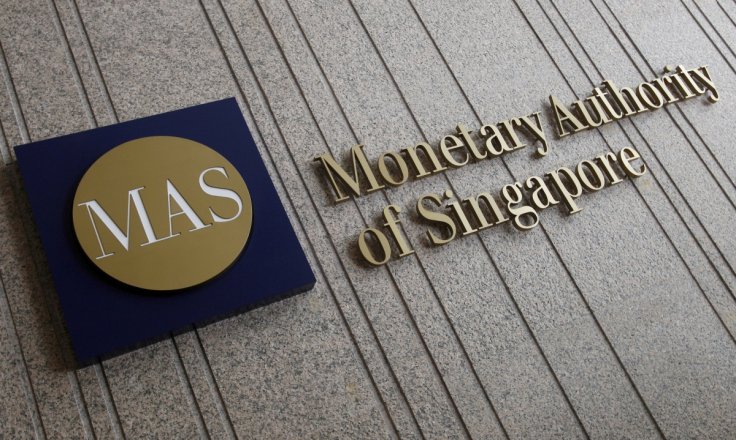
Singapore's central bank on Friday tightened monetary policy for the second time this year, saying the city-state's economy is likely to expand steadily barring a setback to global growth from trade frictions between the United States and China.
The Monetary Authority of Singapore (MAS), which manages policy through exchange rate settings rather than interest rates, said it would slightly increase the slope of the Singapore dollar's policy band, as predicted in a Reuters poll.
It kept its other two policy levers - the width and mid-point of the band - unchanged.
In its semi-annual policy statement, the MAS said inflation is projected to rise in the near term and that price pressures would be fueled by a persistent "small, positive" output gap, meaning actual GDP running slightly above potential.
Economists said the outlook depicted by MAS suggests further tightening could be on the cards next year.
"We now see a strong likelihood that the MAS will tighten once more in April 2019," said Jeff Ng, chief economist at Continuum Economics.
Eleven of 20 analysts in a Reuters survey predicted the MAS would tighten policy via a slope increase, and the Singapore dollar was slightly firmer against the U.S. dollar after the move.
The central bank said global growth has been 'relatively resilient' so far, but cautioned about the risks from trade frictions.
"In 2019, trade frictions between some major economies and the uncertainty they pose could weigh more discernibly on global economic activity," it said.
"Barring a significant setback in global growth, the Singapore economy should expand at a pace close to potential in 2019."
Two of Singapore's top trading partners - the United States and China - are involved in a tariff dispute and the city-state's policymakers and politicians have long-flagged the risks this poses to the global trading and financial hub.
In the latest escalation of the row, the United States slapped tariffs on $200 billion worth of Chinese goods last month, prompting Beijing to retaliate with additional duties on $60 billion of U.S. products.
Earlier this week, the International Monetary Fund cut its global economic growth forecast for this year and next, saying that the trade row between the world's two largest economies was taking a toll and emerging markets were struggling with tighter liquidity and capital outflows.
Data released on earlier Friday showed Singapore's economy expanded slightly less than expected in the third quarter from the previous quarter on an annualised basis. [S7N1SV048].
MAS said GDP growth should come within the upper half of the 2.5–3.5% forecast range in 2018 and moderate slightly in 2019.
The central bank expects its measure of core inflation to edge up to around 2 percent in the months ahead, but come in within its 1.5-2 percent range this year. For 2019, it expects core inflation to average 1.5–2.5 percent.
"The MAS seems hawkish on inflation...their inflation forecast for 2019 is significant," said Brian Tan, an economist at Nomura.
"It is quite clear that they are expecting inflation to persist, which is why they decided to tighten."








